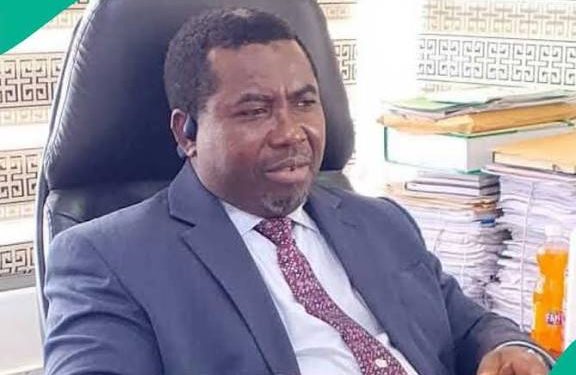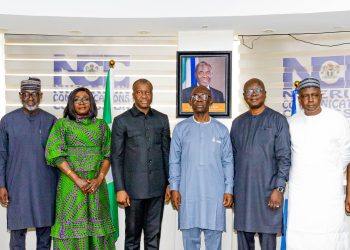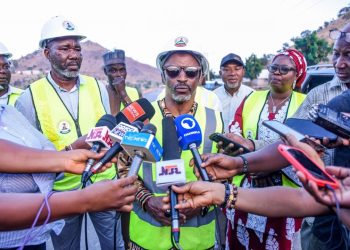By Nkechi Eze
The Chairman of the Independent National Electoral Commission (INEC), Prof. Joash Ojo Amupitan, SAN, has announced that voter impersonation and multiple voting have been decisively defeated in Nigeria following the successful deployment of the Bimodal Voter Accreditation System (BVAS). He described the system as a “foolproof frontline defence” that has permanently shut the door on electoral identity theft.
The declaration was made during his keynote address at the 2025 Digital Nigeria International Conference and Exhibitions held on Tuesday, November 11, 2025, in Abuja. The statement was released by the Chief Press Secretary to the INEC Chairman, Dayo Oketola. Prof. Amupitan was represented at the event by National Commissioner Mrs. May Agbamuche-Mbu.
Addressing an audience of technology innovators, policymakers, and civil society actors, the INEC Chairman said BVAS has transformed the nation’s electoral process and sealed an era once riddled with ghost voters, inflated figures, and fraudulent accreditation.
“The BVAS device has become our frontline defence against identity fraud, ensuring that only the rightful, eligible voter can be accredited at the polling unit,” he said. “With the biometric safeguards now in place, voter impersonation has been effectively eliminated from our electoral system.”
He underscored his declaration with verifiable statistics from the recently conducted Anambra Governorship Election, where 6,879 BVAS devices deployed to polling units recorded an impressive performance. Over 99 percent of polling unit results were uploaded to the INEC Result Viewing Portal (IReV) on Election Day, he stated, noting that the figures announced at polling units were the exact figures visible to the public.
“These outcomes confirm that the deployment of BVAS and IReV is no longer experimental but an entrenched part of Nigeria’s electoral architecture. Technology has safeguarded the vote,” the 2004 University of Iowa Fulbright Scholar said.
Prof. Amupitan explained that earlier technologies deployed by INEC suffered setbacks because they lacked statutory backing. The game-changer, he noted, was the Electoral Act 2022. Section 47(2), in particular, he said, completely altered the legal landscape by elevating BVAS from a mere administrative innovation to a legally protected instrument of authentication.
“This legislative foundation ensures that our digital tools have both operational and legal legitimacy. It has strengthened public trust and enabled the Commission to innovate with confidence,” he said.
The INEC Chairman, however, admitted that while BVAS has effectively subdued impersonation, connectivity remains a significant challenge. He said the real-time transmission of results is constrained by the country’s uneven telecommunications infrastructure, especially across 176,846 polling units situated in some of the most remote terrains.
“A tool like the BVAS is only as good as the network it runs on,” he acknowledged, adding that the Commission continues to engage the Nigerian Communications Commission (NCC) and network providers while exploring alternative technological solutions.
Despite these challenges, Prof. Amupitan issued a stern message to the political class: there will be no return to manual accreditation.
“The gains we have recorded are too significant to reverse,” he said, insisting that any idea of abandoning technology in elections is completely off the table. “The old model of manual accreditation is vulnerable to human interference.”
He reaffirmed INEC’s commitment not just to sustaining technological adoption but to upgrading systems to achieve even greater efficiency and transparency.
As the conference concluded, the INEC Chairman reiterated that the long-entrenched culture of ghost voting in Nigeria had ended.
“Our mission is simple: to ensure that every eligible voter is accurately verified, every vote is properly counted, and every result is transparently shared. Technology has helped us secure these foundations of democracy,” Prof. Amupitan said.
















